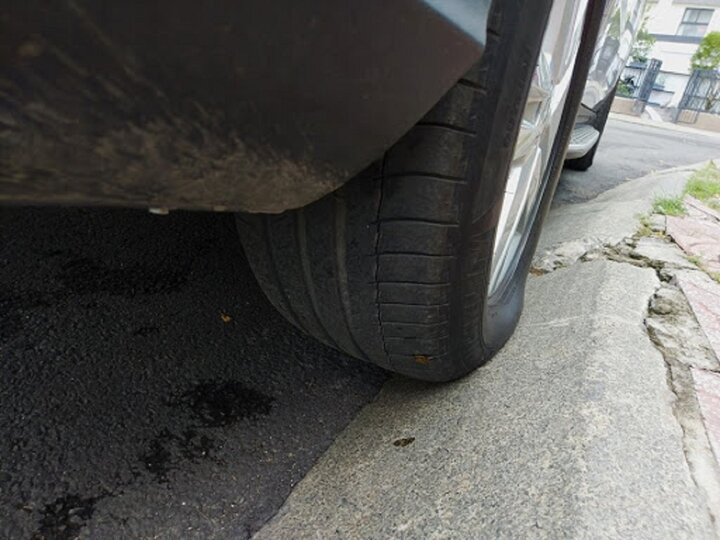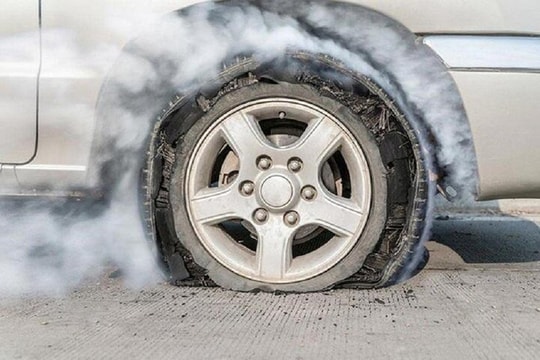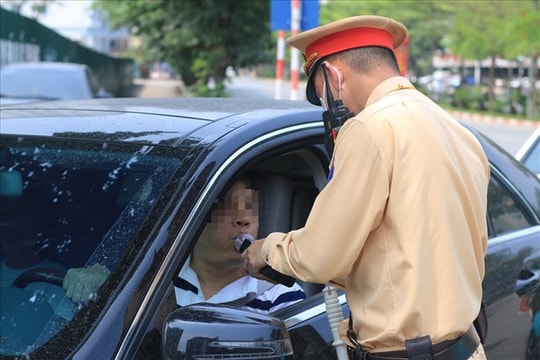Habits that cost drivers money on tire replacement
Tires are the supporting part, having to bear the entire weight of the car, therefore, tires are easily damaged by bad habits of the driver.
Over/underinflated tires
Over-inflating a tire beyond its maximum capacity can cause it to burst when it collides with sharp objects such as stones, curbs, or sidewalks. Even driving for long periods of time in hot weather can cause the tire to explode.
On the contrary, under-inflating will cause the tire to wear out quickly due to the large contact surface, especially when carrying heavy loads, and also affect the rim and shock absorber.
The manufacturer recommends that you inflate your tires according to the instructions on the door label. In winter, you can inflate them more, in summer, you can inflate them less, but not more than 0.1 kgf/cm2 (usually called "weight"). You should not change the tire specifications given by the manufacturer.

Improper parking
Many car owners have the habit of parking their cars with their wheels off-center, causing different pressures to be applied to the tires, causing the tires parked on the road to be compressed and wear out faster than the tires parked on the sidewalk. This parking method also causes the suspension to deteriorate unevenly. There are even cases where half of the car is parked on the road and the other half is parked on the sidewalk, causing the tires to become distorted.
Or parking too close to the sidewalk will cause the tire to scrape against the concrete and sharp edges can tear or puncture the tire.
Parking in the sun can also be harmful as the rubber is subjected to more heat. Parking on uneven or sloped terrain causes the weight to be distributed unevenly across the tires, causing faster wear.
Therefore, drivers should also note that if the car is parked for too long without moving, the tires should be inflated more than the manufacturer's recommendation, choose a flat place and start the engine at least once a week, moving 100 - 200 meters so that the tires do not lose elasticity.
Overloading
In fact, each type of vehicle has its own load capacity suitable for the vehicle's design. Therefore, when the vehicle is often overloaded, the tires will be the first part to be affected. The entire gravity will be concentrated on the 4 wheels, causing the wheels to wear out, "reduce" their lifespan quickly or even explode.
Accelerate or stop suddenly
Many people do not know that accelerating or stopping too suddenly while driving can cause your tires to wear more. Sudden changes in speed cause the tire surface to have extremely strong friction with the road, leading to uneven tire wear. This causes the tire to deteriorate quickly and significantly reduces the tire's lifespan.




